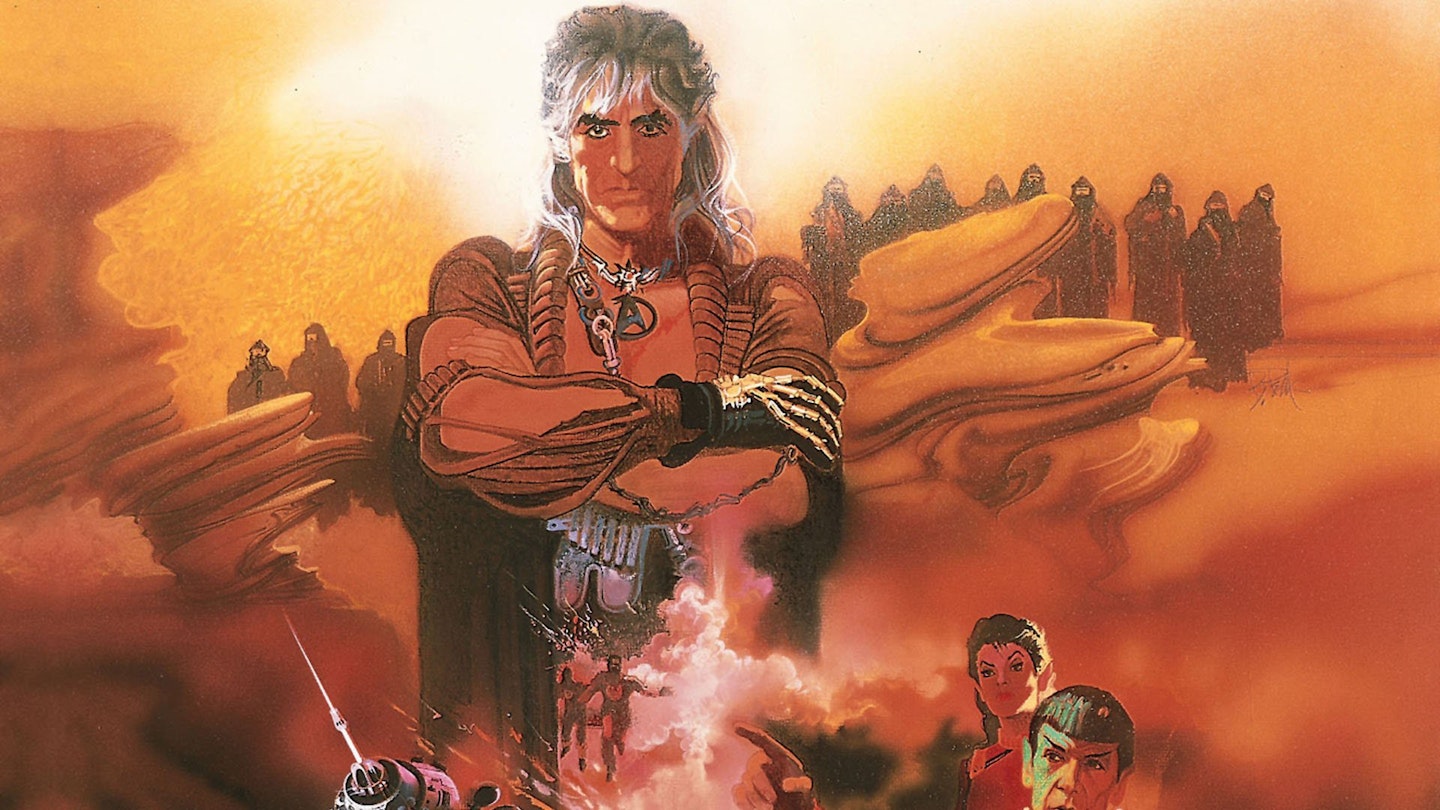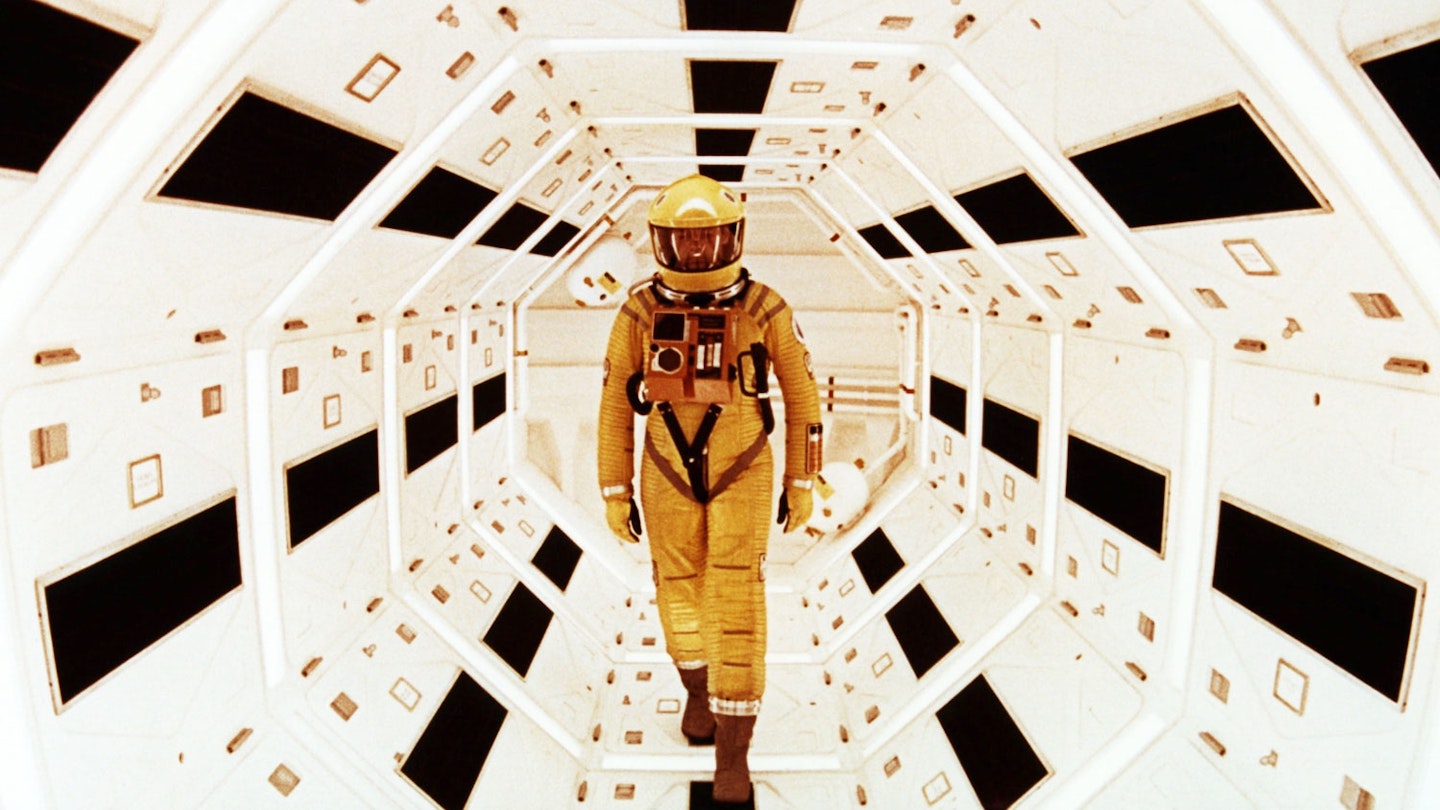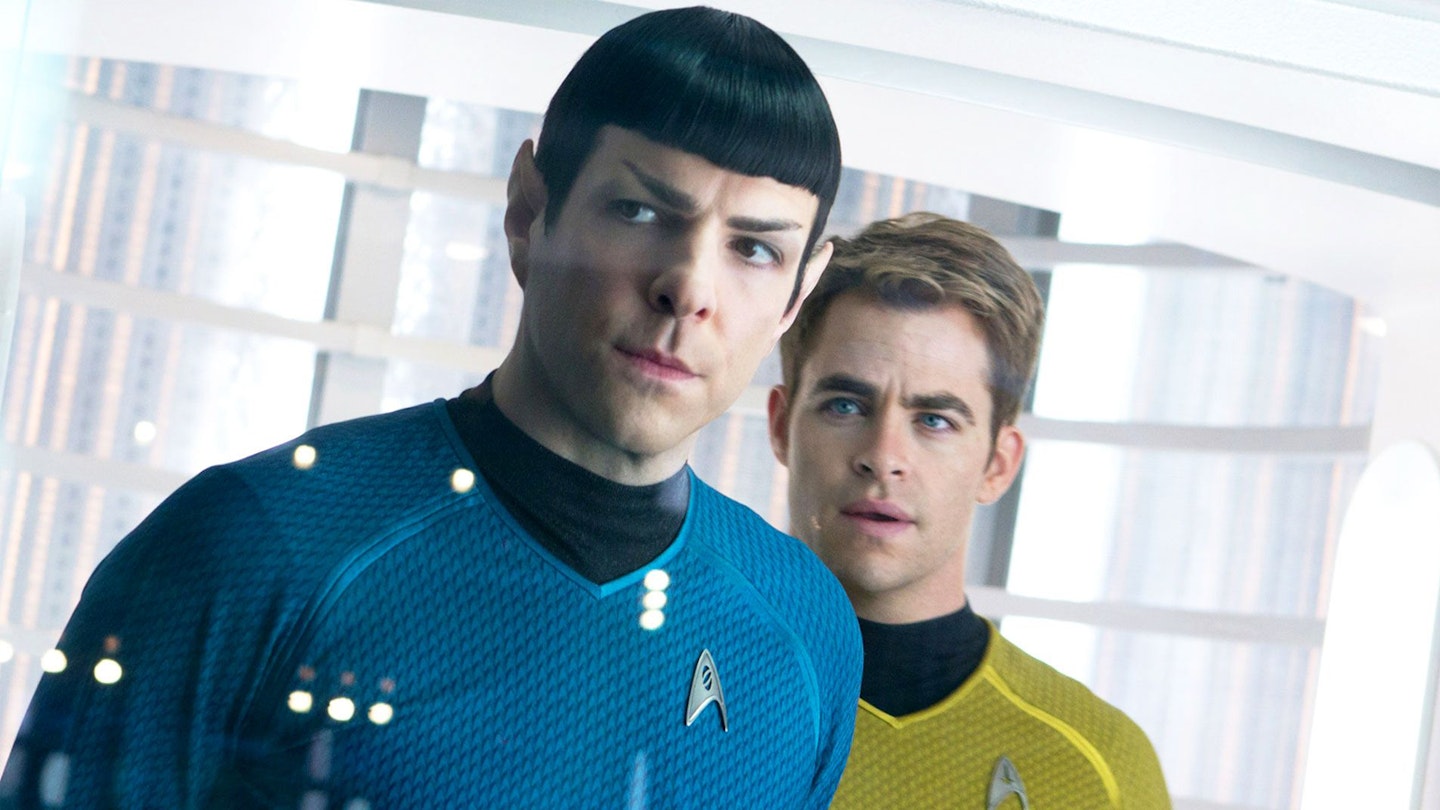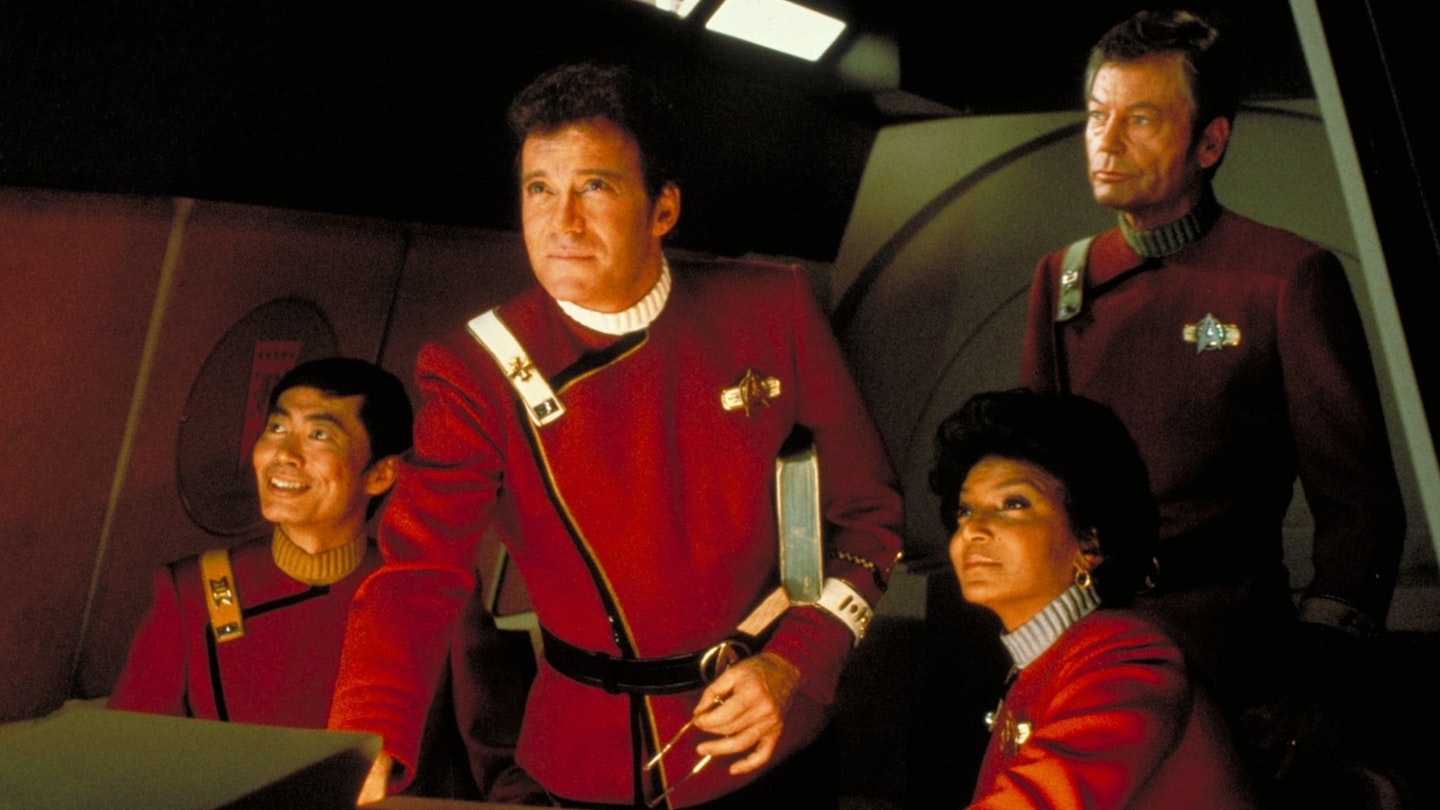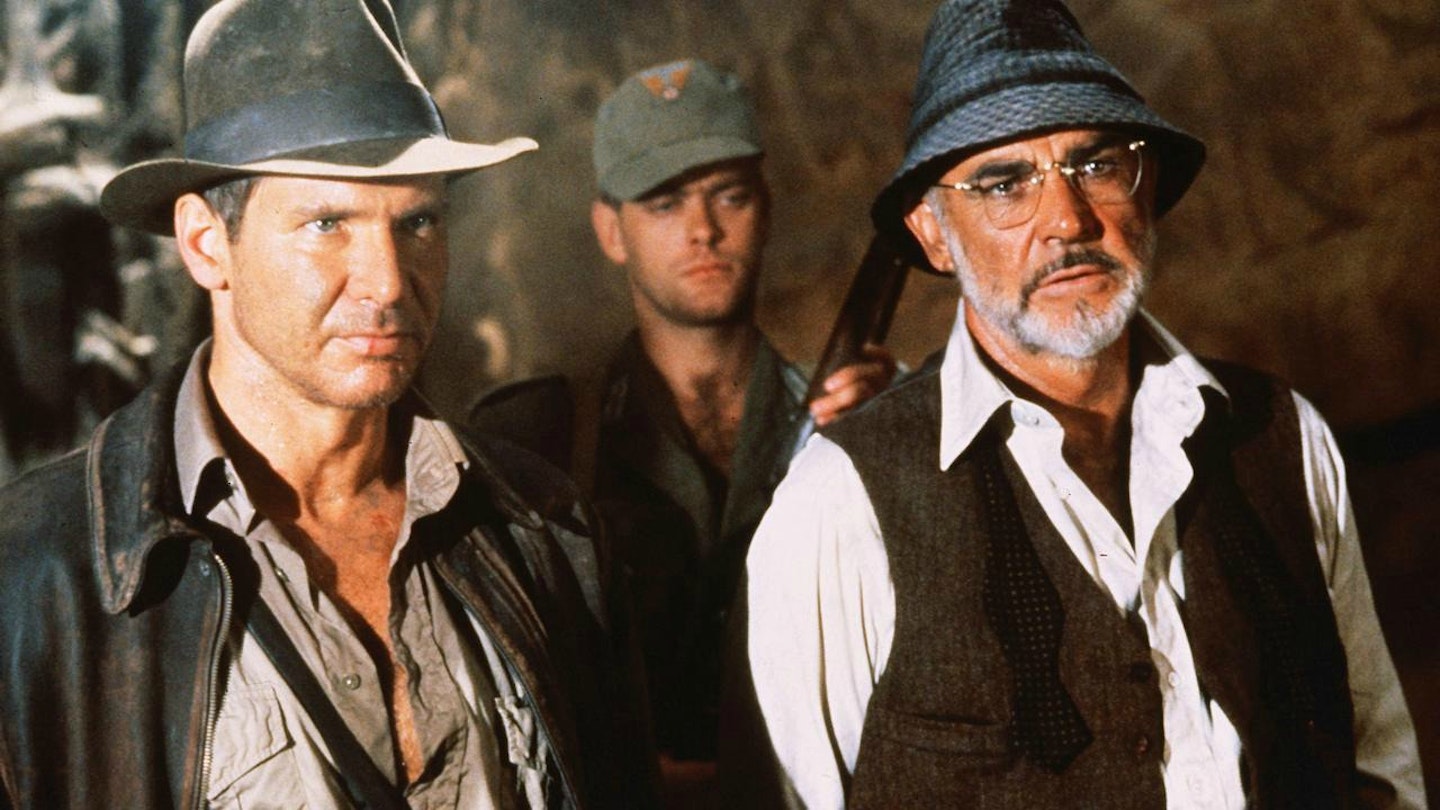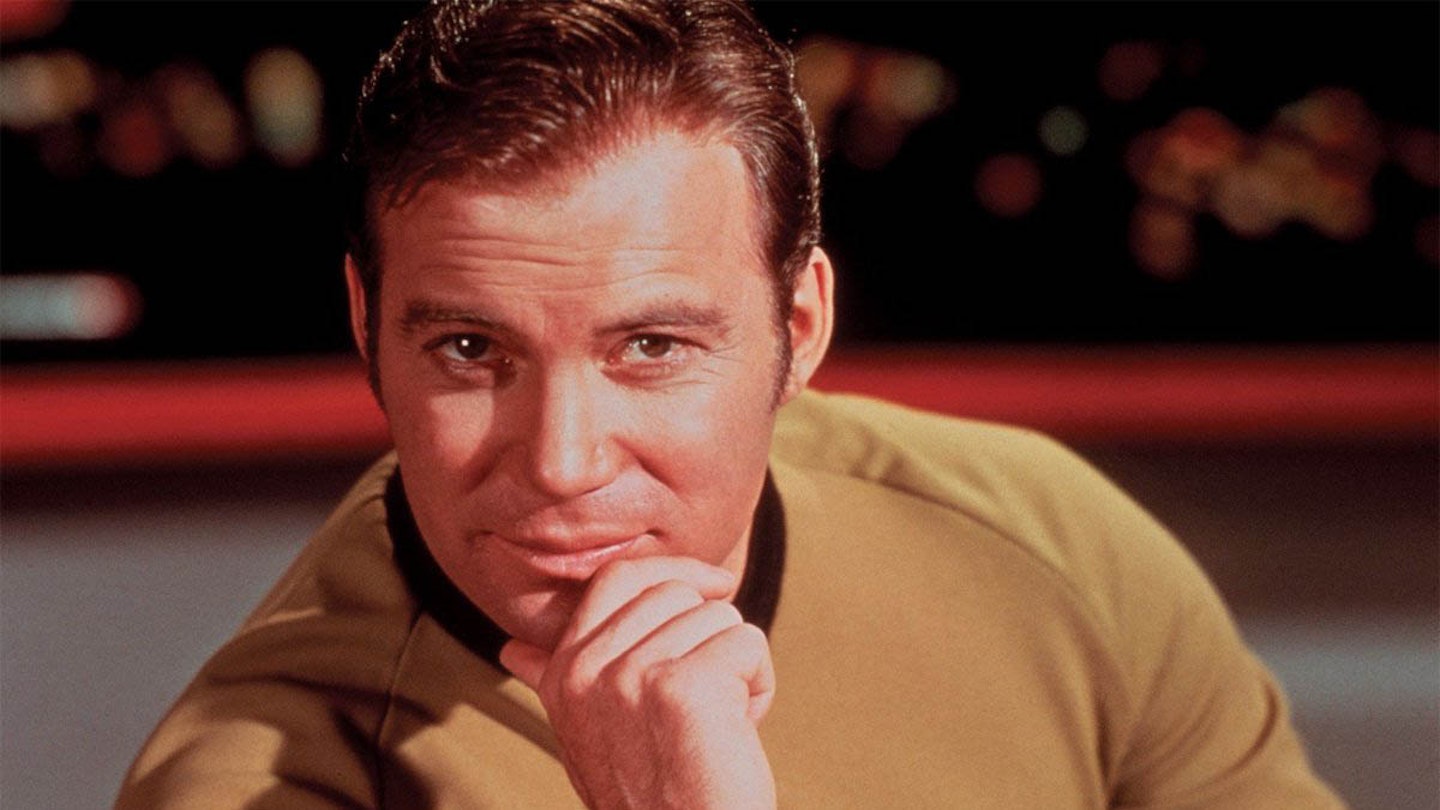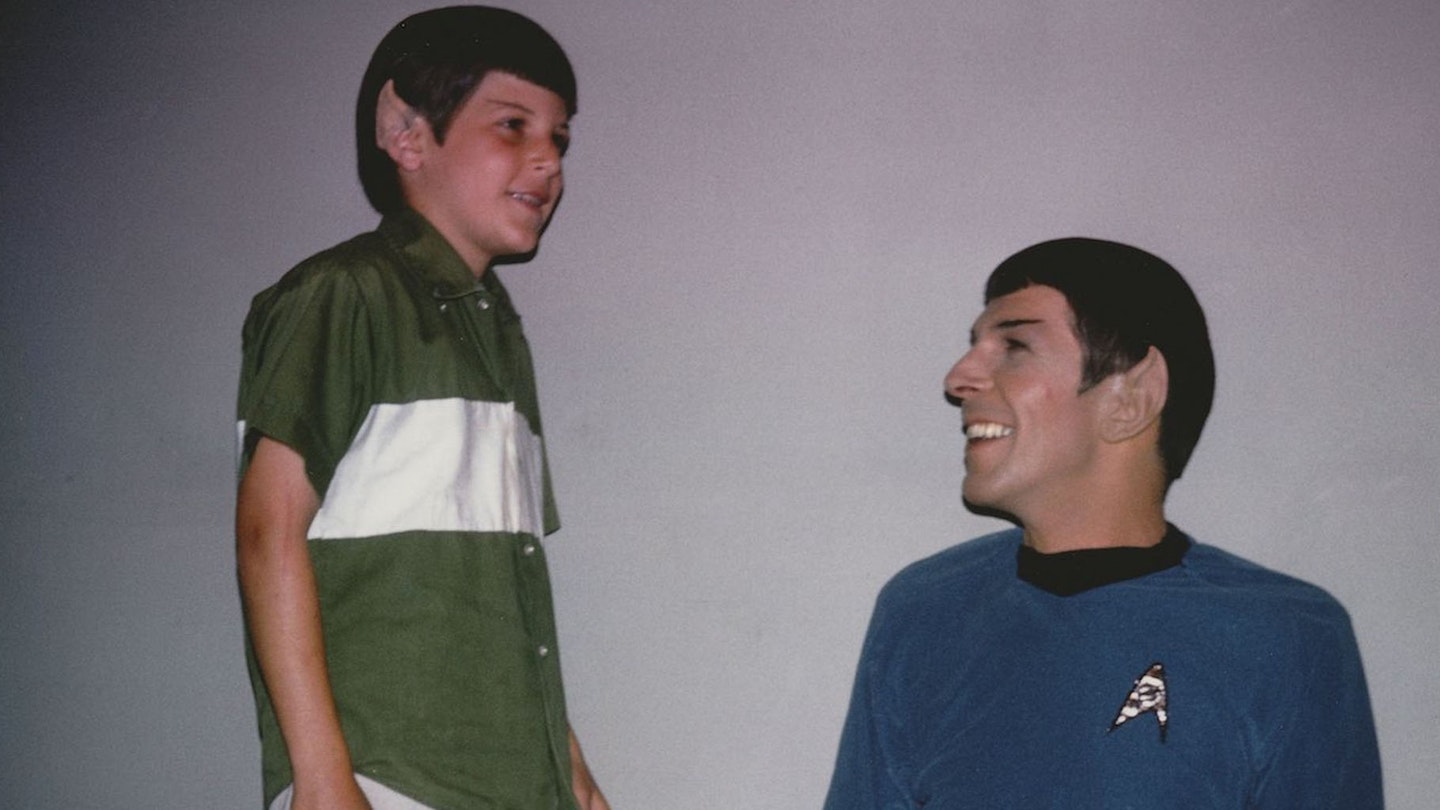Although the slow, gabby, and, frankly, rather insipid Star Trek: The Motion Picture did the business, it was pretty lame to all but the most dedicated, particularly coming two years in the wake of Star Wars.
Nicholas Meyer, a successful novelist (The Seven-Per-Cent Solution) turned able director, understood that the interplay between the characters, back on familiar footing, was as important as the impressive FX. A sequel 15 years on to the classic Trek TV episode Space Seed, the very enjoyable hokum of Wrath Of Khan is energised by the return of a fabulous Ricardo Montalban as the exiled, genetically enhanced tyrant Khan, once ruler of an empire on Earth (round about now, actually) who was originally encountered in suspended animation on the vessel Botany Bay and revived in the 23rd Century.
Having escaped the dead planet where he's been stranded, with his mitts on a starship, a cutthroat band of followers and an all-consuming obsession with exacting terrible revenge on the U.S.S. Enterprise gang chiefly, of course, former captain James T. Kirk (Shatner). Khan is exactly what's required for camp piratical space fun a formidable foe who is charismatic, brainy, and ruthlessly fanatical. The necessity for a showdown takes on save-the-universe urgency when Khan snatches up a highly desirable gizmo the Genesis Device, which reorganises energy into living matter containing the power of creation or mass destruction. The Genesis Device is well named since it provokes dialogue that, in 1982, would have struck anyone with no taste for speculative science fiction as wincingly pretentious. Today it seems more apt as Kirk and cronies debate the potential for and consequences of science second-guessing God. The real heart of the story is, however, almost unique in the annals of screen sci-fi. It's about getting old.
The most elegiac of the big screen Treks, the adventure celebrates comradeship above all the other fundamentals and imperatives of the Trek ethos (like courage, curiosity and cultural imperialism). And it's a tale told with considerable warmth and humour, some spiffing explosions and a multiple-hanky act of self-sacrifice to round things off. At the beginning the once irrepressible Kirk's birthday (which one it is we aren't told, but the big five-o seems likely) brings on morose reflection. The former intergalactic babehound says "Galloping around the cosmos is a game for the young," considers the paths not taken (unaware that an old flame and his hitherto unknown, full grown son are about to be sprung on him) and is passively resigned to an assignment commanding a computer console in place of his "first, best destiny" command of a starship.
Spock (Nimoy) gives him an ancient copy of A Tale Of Two Cities. Bones (Kelley) gives him a pair of antique spectacles for his middle-age myopia, so he can read it, which comes in handy when he misquotes Sydney Carton in the eventual denouement. A simple training cruise for Starfleet cadets (including a debuting Kirstie Alley as Vulcan smarty-pants Saavik) is tiresomely routine and seems set to be Kirk's last mission. Then Khan rears his vengeful head yippee! forcing Kirk to boldly go once more.
The point is, he learns, there are still big challenges: "I haven't faced death. I've cheated death. I've tricked my way out of death, and patted myself on the back for my ingenuity. I know nothing." That understood, the adventure of life goes on, age, a crazed villain and a warp drive engine on the blink be damned. As is the case in the best of the classic Trek screen adventures (let's hear it for IV and VI, both co-written by Meyer) Jack B. Soward's script is witty and literate, the crew are on top self-mocking form and there are neat references to Dickens and Melville. But Wrath Of Khan is capped by a daring shocker: killing a beloved character (or at least so fans believed until Star Trek III) to press home such weighty Trekian sentiments as "The needs of the many outweigh the needs of the few, or the one."
What haven't worn as well are the disastrous fashion statements: striped bell-bottom uniform trews tucked into boots and those absurd Santa Claus tunics. And then, of course, there's the trademark dodgy coiffures. Still, it's a far, far better thing they do than they have ever done when they can save civilisation as we know it even on a bad hair day.
